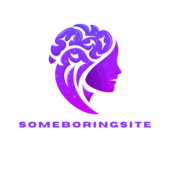
Which statement is an example of a paradox? can be a fascinating journey into the realm of contradictions and thought-provoking statements. One such statement that often captures our attention is the paradoxical one – a statement that seems self-contradictory or absurd but may reveal a deeper truth upon closer examination. In this article, I’ll delve into the concept of paradoxes and highlight an example that challenges our conventional understanding.
Paradoxes have a way of challenging our perception of reality and sparking intellectual curiosity. They invite us to question our assumptions and think beyond the surface level. As we unravel the layers of meaning behind a paradox, we may uncover profound insights that defy simple explanations. Join me as we unravel the mystery of paradoxical statements and discover the hidden wisdom they hold.
Which Statement is an Example of a Paradox?
What Is a Paradox?
 Which statement is an example of a paradox that appears self-contradictory or illogical but, upon closer examination, reveals a hidden truth or a surprising resolution. It is a literary device commonly used in philosophy, literature, and everyday language to challenge conventional thinking and provoke deeper contemplation. Embracing paradoxes allows me to explore the complexity of concepts and perceive beyond the surface contradictions.
Which statement is an example of a paradox that appears self-contradictory or illogical but, upon closer examination, reveals a hidden truth or a surprising resolution. It is a literary device commonly used in philosophy, literature, and everyday language to challenge conventional thinking and provoke deeper contemplation. Embracing paradoxes allows me to explore the complexity of concepts and perceive beyond the surface contradictions.
How Do Paradoxes Function?
Which statement is an example of a paradox function as intellectual enigmas that disrupt our cognitive patterns and compel us to reconsider our assumptions. By presenting contradictory elements in a seemingly irreconcilable manner, paradoxes stimulate critical thinking and encourage me to embrace ambiguity. Engaging with paradoxes offers me a unique perspective on problem-solving and expands my capacity for nuanced reasoning in navigating intricate ideas and philosophical conundrums.
Examples of Famous Paradoxes
The Liar’s Paradox
 Exploring the classic Liar’s Paradox, I delve into a statement such as “This statement is false.” This seemingly simple sentence presents a paradox as its truth value cannot be consistently assigned. It challenges the foundations of logic, leaving one caught in a loop of contradictions. The Liar’s Paradox demonstrates how language can create intricate puzzles that defy straightforward solutions, pushing us to confront the limitations of our logical systems.
Exploring the classic Liar’s Paradox, I delve into a statement such as “This statement is false.” This seemingly simple sentence presents a paradox as its truth value cannot be consistently assigned. It challenges the foundations of logic, leaving one caught in a loop of contradictions. The Liar’s Paradox demonstrates how language can create intricate puzzles that defy straightforward solutions, pushing us to confront the limitations of our logical systems.
The Ship of Theseus
Reflecting on the Ship of Theseus paradox, I examine the thought experiment involving a ship undergoing gradual replacement of its parts. As each plank and piece is replaced, one questions whether it remains the same ship. This paradox probes the essence of identity and transformation, prompting a deeper reflection on the nature of objects and their continuity over time. The Ship of Theseus challenges our perceptions of identity and raises profound philosophical inquiries into the concept of change and authenticity.
Identifying Paradoxes in Statements
Characteristics of Paradoxical Statements
Which statement is an example of a paradox, it’s crucial to understand their unique characteristics. Paradoxical statements often challenge common beliefs and expectations. They can appear self-contradictory at first glance but hold deeper truths upon closer examination. These statements play with logic and language, creating a tension that prompts reevaluation.
Analyzing Statements for Paradoxical Elements
 To analyze statements for paradoxical elements, I focus on detecting contradictions or unexpected twists within the text. I pay attention to phrases that seem to oppose each other or lead to unexpected conclusions. By scrutinizing the language and structure of statements, I uncover hidden layers of meaning that reveal paradoxical elements. This analytical approach helps me unravel the complexity of paradoxes and unveil the thought-provoking nature of seemingly contradictory statements.
To analyze statements for paradoxical elements, I focus on detecting contradictions or unexpected twists within the text. I pay attention to phrases that seem to oppose each other or lead to unexpected conclusions. By scrutinizing the language and structure of statements, I uncover hidden layers of meaning that reveal paradoxical elements. This analytical approach helps me unravel the complexity of paradoxes and unveil the thought-provoking nature of seemingly contradictory statements.
Practical Implications of Paradoxes
Use in Literature and Philosophy
In literary works and philosophical discourses, paradoxes play a pivotal role in challenging traditional perspectives and prompting deep contemplation. They serve as powerful tools for authors and thinkers to disrupt common beliefs and stimulate intellectual curiosity. Through the use of paradoxical statements, writers can inject complexity and ambiguity into their narratives, inviting readers to explore multifaceted interpretations and question established truths.
Impact on Logical and Critical Thinking
Paradoxes have a profound impact on the development of logical reasoning and critical thinking skills. By presenting seemingly contradictory statements that defy straightforward interpretation, paradoxes compel individuals to engage in in-depth analysis and creative problem-solving. They demand a reevaluation of preconceived notions and foster the ability to think beyond conventional boundaries.
